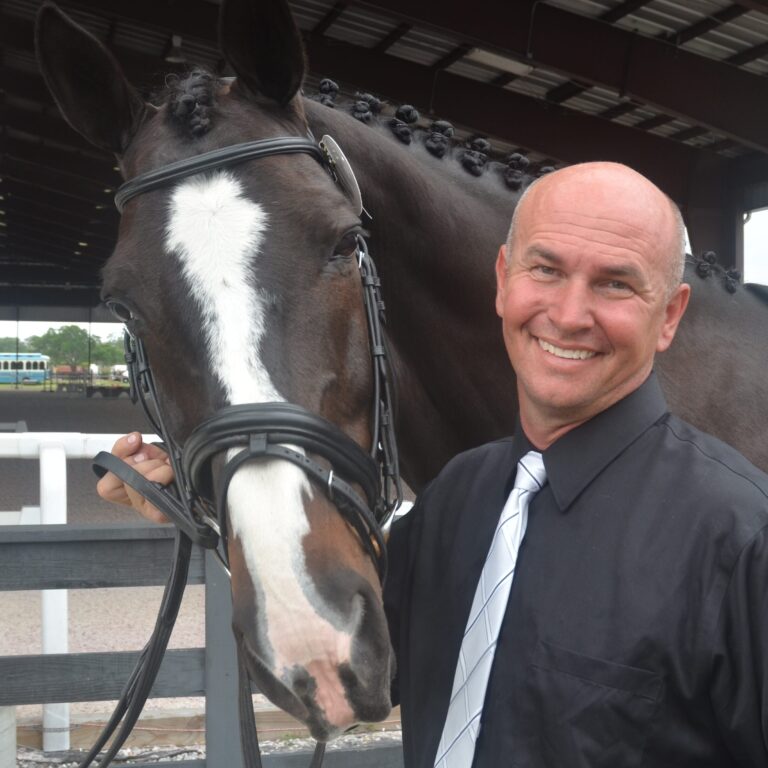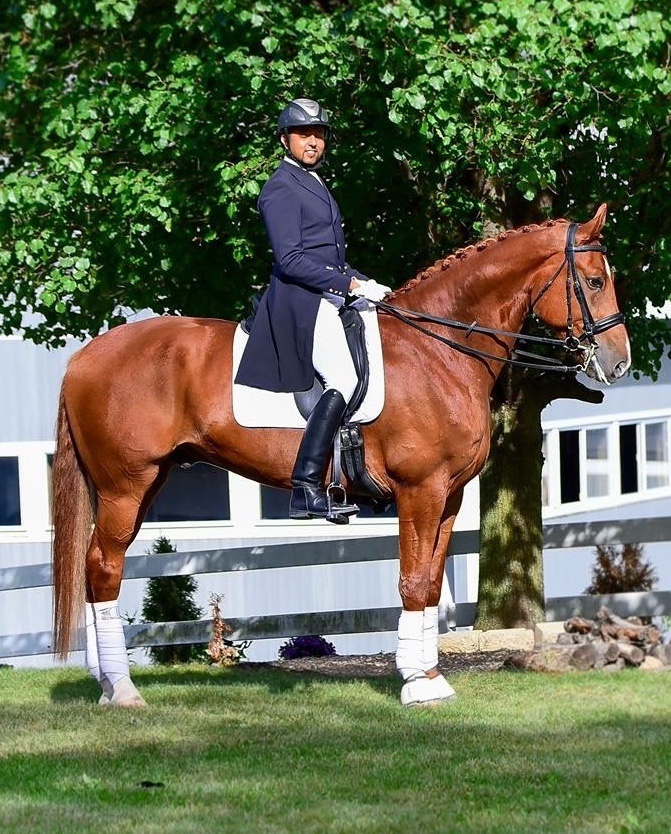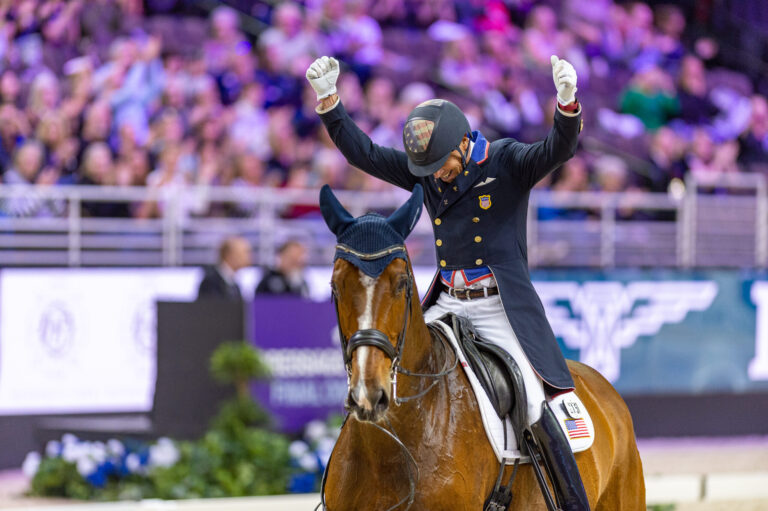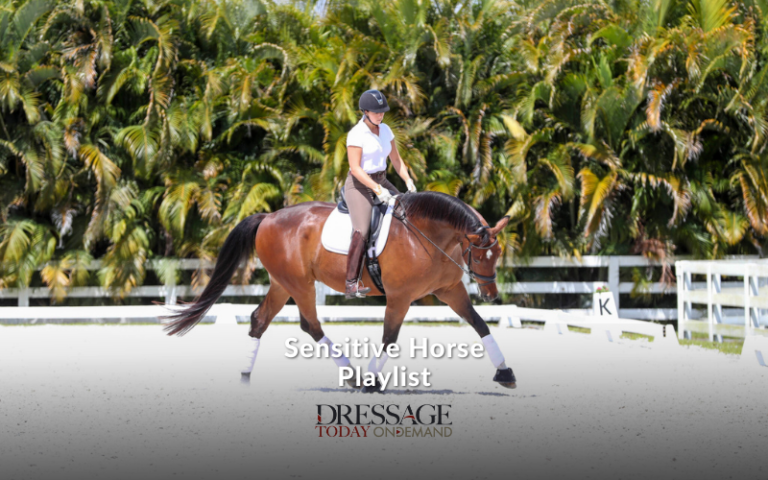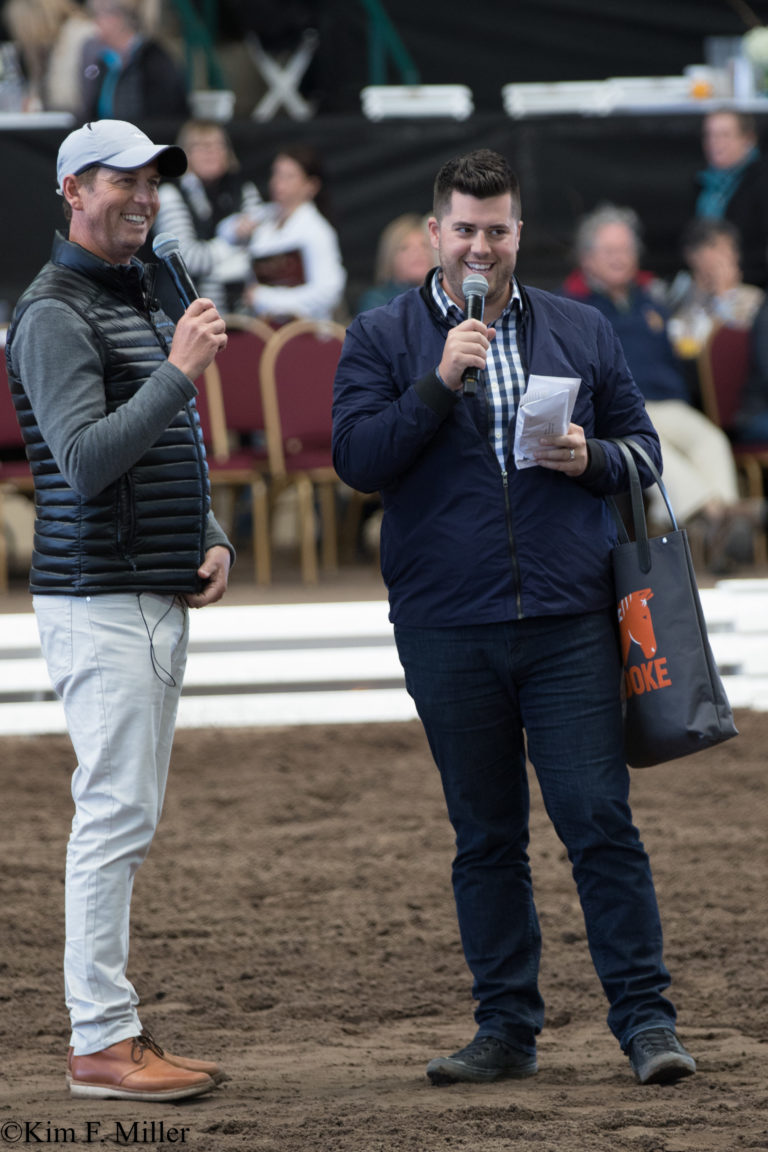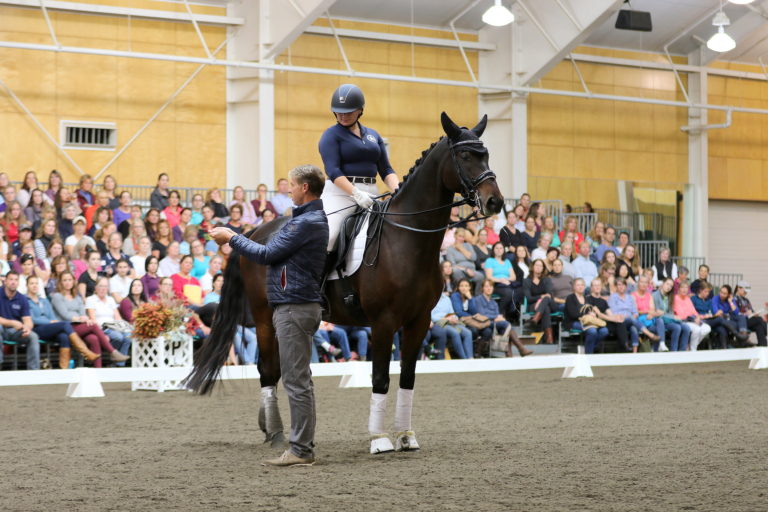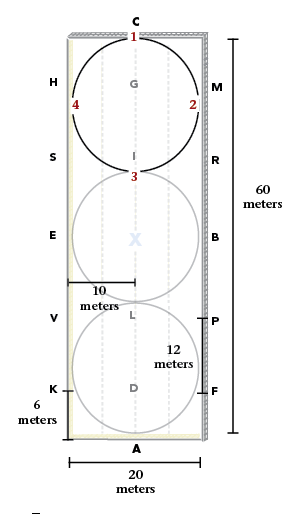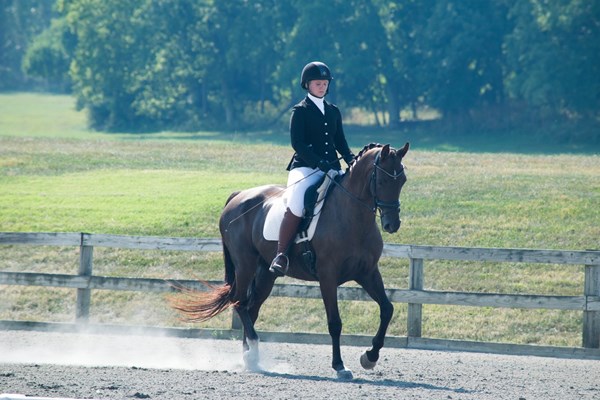
I’m a talker. I almost always have something to say about any given topic. And if I’ve had caffeine, lord help us all. Can I get an amen from my fellow Chatty Cathies?
Being talkative is sometimes helpful: like when someone needs to make small talk at cocktail party, network at a conference, produce a podcast or try to stir up conversation in a brainstorming session. Being talkative is not helpful at other times, like at a funeral, in a doctor’s office waiting room, on an international flight, at the symphony or in my own personal hell: guided meditation class.
It’s not that I actually think my opinion is so important or that I really like the sound of my own voice—I actually really hate the sound of my own voice—but it’s how I process the world around me. It’s that talking things through is how I make sense of what’s going on inside and outside of my brain. In short, I am the textbook case of a verbal processor.
In my dressage work, it’s my natural inclination to want to talk through every movement, every feeling, every challenge, every success and every struggle. I have had some amazing riding instructors over the years who have embraced my learning style and I think my theoretical knowledge of dressage has benefited from that immensely. My current instructor, Vanessa Swartz, gives me opportunity to talk things through during my lessons but she also brings a viewpoint that I desperately need. As I’m sitting there talking myself into circles from atop my horse, she says: “Right. I hear you. But I think you need to stop talking about it and just go do it!” She’s good at putting a stop to my chatty, over-analytical brain. Less talking, more riding!
Outside of my own lessons, I know that when I’m at a show, or watching a lesson, I’m supposed to generally be quiet. People who aren’t familiar with our world might just wrongly assume that we get a thrill from spending all of our time in a place with atmosphere of a funeral parlor. But we all know that’s not true. We need to be mindful of others and minimize distractions for those who are concentrating and learning.
When I was recently reading one of our archived articles from Gerhard Politz about creating dressage students who think and feel (click here to read it) I was reminded of one of the most important reasons to keep quiet in the ring:
Thank you, Gerhard, for those wise words!
I know you won’t find this surprising given all that I’ve just said, but it’s not just my mouth and my brain that likes to chat. My body is also incredibly talkative when I ride. In addition to Vanessa, literally every other clinician I have ridden with over the past two years has focused on helping me quiet my leg, stop sitting in the back seat and refrain from driving during every stride. Yes, I know that you’re not SUPPOSED to do that, but old habits die hard.
As I think more about riding with quiet aids, one DT article from with Jeremy Steinberg on how to ride with a “library-quiet” position comes to mind. In his article (click here to read it), Jeremy shares a really helpful way of thinking about quieting your body and your aids:
My goal for the foreseeable future is to channel these ideas more into my riding. Feel first, talk later. Less talking, more riding. And, while I’m at it, maybe I should go give guided meditation class another chance.


